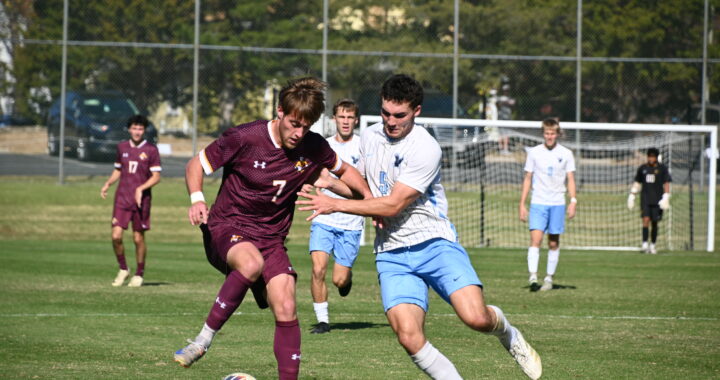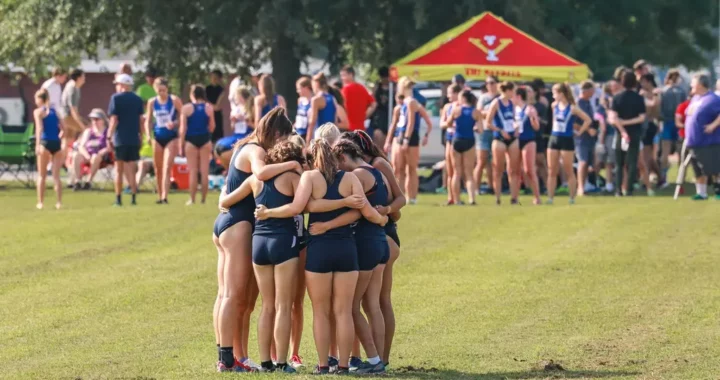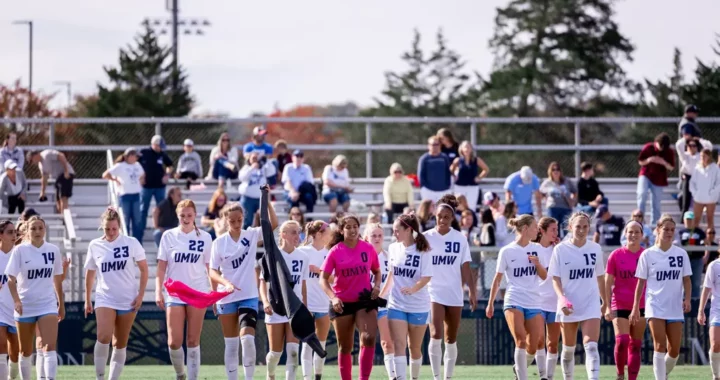Athletes reflect on the utilization of study hall
4 min read
By ALISON TOVEY
Staff Writer
For many student athletes, mandatory study hours decide whether they will be able to participate in a game or a meet. A certain number of hours are given to athletes varying on which sport they play.
Mackenzie Hard, a Junior American Studies major and women’s crew team member, said, “Some athletic teams have longer study hours than others but the team sports and club sports aren’t required to do study hours unless a captain requires them to do so.”
For many, mandatory study hours are a good way to set aside time dedicated to schoolwork without distractions.
“In the past, I’ve gone to study halls with friends on varsity teams and it was really helpful because it was a set amount of time within my week that I knew I could get work done,” said Hard. “It can be frustrating if you’re not on a varsity team if you go in because there is limited space in the HCC especially when there’s larger teams in there.”
Freshman and track team member Bailey Johnson said, “I think this is a great way to make student athletes stay on top of their grades… Many athletes get caught up in their sport to the point that they eat, breathe and sleep their activity and forget to do what is important, their homework.”
How each team handles study hours is often up to the captain or coach to decide. Sophomore accounting major and men’s golf team member, Austin Matz attends study hours once every week for two hours with the rest of the golf team.
“Since we were a new program last year, we didn’t have any study hall in the fall but our team GPA was poor so we implemented one in the spring Sunday night to Wednesdaynight every week from 7 p.m. to 9 p.m. in the HCC,” said Mats. “Our team GPA went up by 0.5. I think it’s a great idea to have set study hours as a team since it forces everyone to get work done… It personally helped me for sure, and I think it is a great way to make sure athletes are staying on top of their academics.”
 Other teams don’t require that the whole team meets all together at the same time. Sophomore business administration major and women’s field hockey team member, Victoria Hughes does her study hours on a sign-in basis so she is able to study on her own time.
Other teams don’t require that the whole team meets all together at the same time. Sophomore business administration major and women’s field hockey team member, Victoria Hughes does her study hours on a sign-in basis so she is able to study on her own time.
“For basketball during the preseason we have mandatory study halls 3 times a week for 2 hours per session… We all meet in the top floor of the library at the same time and study for two hours,” says sophomore history major and women’s basketball team member, Emily Thompson. “I enjoy them because I know it is a set time where I have to get my work done with no distractions.”
Hughes writes, “I like that part of it because it’s flexible and allows me to go in to do study hall when I have work to do… Your GPA and class standing determines how many hours you have to do.”
Sometimes these changes might be more difficult for transfer students as Hughes explains, “I have to do 4 hours like the rest of the freshman, last year my old team at my old school did study hall in a way that we would all meet at scheduled times and have to do study hall together,” said Hughes. “I hated that because it was always at night and I typically had all my work done already so it was a waste of my time.”
Attendance at study hours is important if an athlete wants to play in a game or meet. If an athlete falls below a certain GPA level, then they will not be able to play.
“I know academic probation for the school is under 2.0 and athletics is 1.8 I think but it’s different for every team,” Matz said. “I know for us if you’re on academic probation by the school, you can’t play.”
Ultimately students seem to enjoy the productivity that study hours enforce. They can be a source of team bonding as well as a way to get work done.
“As a freshman, I am required to have 6 study hours a week, and if I do not meet these requirements then I will not be able to participate in a meet,” Johnson added. “For some athletes who are dedicated to their sport, the coaches’ decision of removing them from a meet or match is a devastating idea, therefore they ensure that their study times are complete.”


